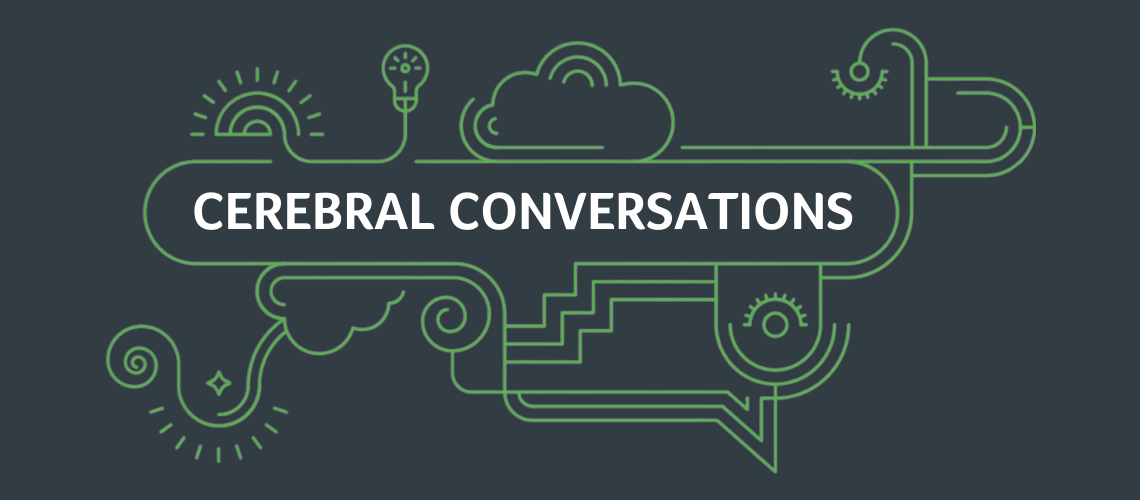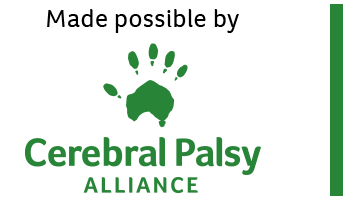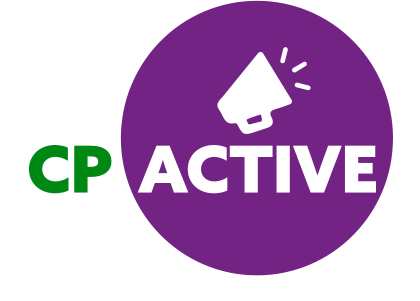Podcast: ‘Speaking Up’ with Bronya Metherall and Tara Moss

Cerebral Conversations is a podcast series by Cerebral Palsy Alliance. Each episode features an inspiring discussion with changemakers living with cerebral palsy and similar disabilities. We can all be agents for change, but we need to find our voices first and the courage to speak up. In this episode, Bronya and Tara speak up about […]
Podcast: ‘Early Diagnosis and Meeting Eve’ with Nadia Badawi

One in 10 babies born in Australia end up in a NIC unit in our hospitals. In Australia we can do ethical, safe as can be, best research on stem cells and other therapies that parents are crying out for.
Join this cerebral (palsy) conversation with internationally renowned neonatologist, Professor Nadia Badawi. Early in her career, Nadia realised that working with newborns was an opportunity to change the entire course of a person’s life, not to mention having a huge impact for their family and the wider community. That realisation has taken her on an incredible path, becoming a leading voice in neonatal intensive care.
Podcast: ‘Let’s Get Visible!’ with Hannah Diviney and Tara Moss

Australia is recognised as one of the most inclusive nations in the world, but really, is it?
In this podcast, disability advocate and CPActive Champion Hannah Diviney joins Tara Moss to dig into the details of what it’s like to live with a disability and tackle stereotypes, mental health issues, and barriers to work and education. How do Hannah and Tara overcome the stigmas around disability and women? What does living with a disability mean for our sense of identity? And really, why isn’t there a disabled Disney princess? (Hannah’s working on that.)
Cerebral Conversations podcast: Ahead of the (Learning) Curve with CPActive Champion Lia Sintras

CPActive Champion and Kosciuszko conqueror Lia Sintras has lived with cerebral palsy since she was just a year old, which hasn’t stopped her for a moment. From climbing Mount Kosciuszko to walking into her end of school formal (after over 500 hours of training no less), Lia knows better than most that – as she puts it – “Nothing is impossible. You just need to find people that make it possible.”
In the episode ‘Ahead of the (Learning) Curve, Lia takes us through the challenges and highlights of her school years, the importance of finding champions to back you, and what she’s working on to advocate inclusion for everybody who lives with a disability.
CPActive Champion Hannah Diviney appears on The Project and named Women’s Weekly Awards finalist

CPActive Champion Hannah Diviney is on a mission to change things for women living with a disability. Now a Women’s Weekly Awards finalist with national television appearance under her belt, she’s not slowing down. Hannah made her mark as an activist last year when she petitioned Disney to create a princess with a disability and […]
Paralympics: Highlights from the Virtual Ticker Tape Parade
Australia’s Paralympic team put in an inspirational performance at the Tokyo 2021 Paralympics. They lifted the hearts of millions of Australians watching at home, struggling through a new wave of the COVID-19 pandemic. At the CPActive Virtual Ticker Tape Parade, we asked young aspiring athletes with cerebral palsy to interview some of their Paralympic heroes […]
Millions of Reasons: the best of World CP Day
October 6 marked World CP Day, and people around the world took to social media to share Millions of Reasons to celebrate. So many amazing stories and photos were shared from every corner of the world – both by people living with cerebral palsy, and from their nearest and dearest who seized the day to […]
Window of Opportunity: parents on diagnosis and treatment of CP
At CPActive’s Window of Opportunity launch event, four parents of children with cerebral palsy bravely told the story of their child’s diagnosis and treatment. Some were able to receive an early diagnosis, giving the family the answers they needed, and their child the chance to receive the early treatment that can drastically improve their health […]
Window of Opportunity: experts explain the science of early screening
We were privileged to have some of the world’s leading experts on cerebral palsy: Dr Cathy Morgan and Professor Iona Novak from Cerebral Palsy Alliance Research Institute, and Professor Rod Hunt from Murdoch Children’s Research Institute, join us at the launch of the Window of Opportunity campaign. They spoke to our CPActive community to explain […]
Resilience, community and representation – key lessons from CPA’s Paralympic Ticker Tape Parade
The amazing performance of Australian athletes with cerebral palsy at the Tokyo 2020 Paralympics has inspired a new generation of young children with CP and similar disabilities. To celebrate the return of our Aussie Paralympians, CPA recently held a virtual Paralympic Ticker Tape Parade, pairing aspiring athletes with some of our most successful Paralympians living […]

